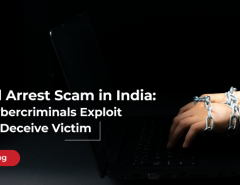It is the season of the beautiful game. The world is tuned into the festival of football that is the 2018 FIFA World Cup in Russia. As some of the greatest superstars of the sport show off their skills in Russia, sport fans are celebrating football, both in Russia and across the world.
Yet there is a dark specter unfortunately lying over the event and it is the specter of cybersecurity. Like it or not, the world we inhabit in is a digital one and even a big sporting event like the World Cup is not immune to the risks of cyber attacks. In fact, sporting events of this nature are a desirable target for cyber criminals due to their high-profile nature and the huge number of people who follow them. It’s a good target to unleash an attack and the global media coverage means it will immediately become popular.
Fans at risk
Whether it is the Olympics, the Paralympics or the World Cup, any sporting event of such a magnitude attracts cyber attacks. During the period of the 2008 Olympics in Beijing, China faced around 12 million online attacks per day. The 2014 FIFA World Cup in Brazil saw hackers claim attacks against many tournament-related websites such as the sponsor, the Brazilian government and the country’s intelligence agency. This was done through a series of distributed denial-of-service or DDoS attacks. Ticket sales for the ongoing 2018 World Cup are close to 2 million which represent a rich repository of data and information for criminals to hack.
Fans who attend these matches are always at risk if they conduct financial transactions in non-secure environments. They may also receive phishing messages where legitimate communication (say, designed to be from FIFA) will ask them to click on a link or download malicious software on their devices. Like any other sporting event, the World Cup is a time of heightened emotion and hence, a time when social engineering efforts are more likely to succeed. Caught up by the emotions of their favorite team or athlete losing or winning, any fan may be less likely to conduct their due diligence and hence may inadvertently give away precious credentials on an unsecured Wi-Fi or a malicious website.
Heightened sense of security
Basically spectators can stay safe and secure while attending such sporting events by following a heightened sense of the traditional cybersecurity rules. Be wary of scams and of submitting personal data, especially to unknown websites and be very careful when using public networks. Ensure that family back home have another copy of all important documents. And ultimately, keep control of all your debit and credit cards, as it is very easy for fraud to happen in an unknown country.
It is not just fans but even athletes and sporting organizations that must be wary of cyber criminals. In 2016, a cyber hacker group released confidential athlete data by hacking databases from the World Anti-Doping Agency (WADA). This was a serious breach of athlete data but it got worse – the same group had hacked the International Association of Athletics Federations (IAAF) leaking confidential data about athletes and their exemptions for drug use.
Hence teams have taken their own precautions. England’s Football Association (FA) advised its players and staff not to use public or hotel Wi-Fi at the World Cup in Russia to ensure that sensitive information such as squad tactics were not leaked. Other countries have also followed similar measures hence underlining the importance they are giving to cybersecurity in this day and age.
Hence it is extremely important for all stakeholders to remain vigilant especially when it comes to a major sporting event. When passion and emotions are high, logic can often go for a backseat and that is exactly what hackers are waiting for.
As an IT security partner for your business, Seqrite provides comprehensive security from advanced cyber threats. To know more




